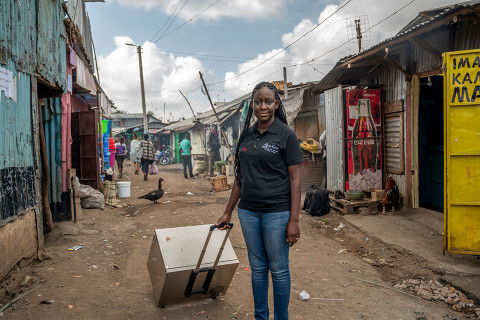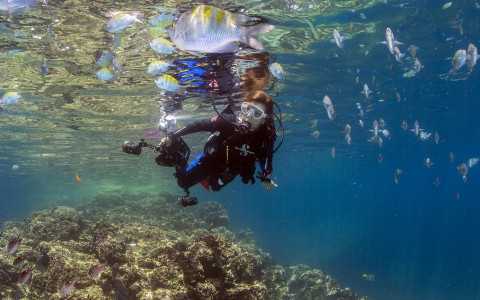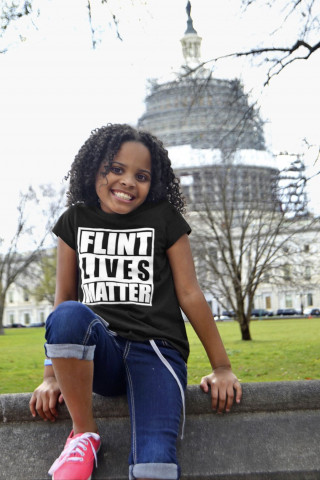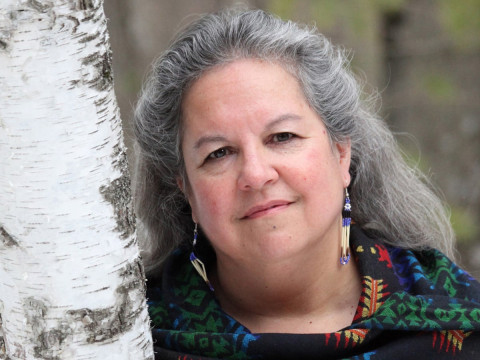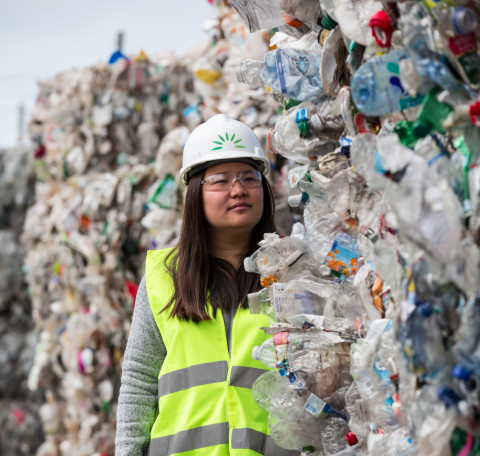Clark County Green News
International Women's Day: Paving the Way for Girls in STEM
March 8th is International Women's Day, and we wanted to take the opportunity to highlight some environmental activists and sustainability leaders from around the world who are paving the way for the next generation of girls in STEM. According to the UN, women represent only 33% of all researchers, receive fewer research grants than their male counterparts, and are less likely to be promoted or published in high-profile journals. Gender equality in STEM fields is necessary for achieving our global sustainability goals, and we are grateful to the women and girls around the world who are working to create a greener future!
Norah Magero
Norah Magero is a mechanical engineer and renewable energy expert from Kenya. Graduating as part of an undergraduate engineering class where only 1 out of every 10 students was female, she experienced first-hand the barriers that women face while entering STEM fields. This has inspired her to change the narrative about African women, especially those in rural areas, by increasing their ability to access renewable energy technologies. In 2018, Magero co-founded Drop Access, a women- and youth-led organization that develops practical renewable energy solutions for rural and off-grid communities in Africa to improve their adaptive capacity to climate change. The organization's most recent innovation, VacciBox, is a portable, solar-powered fridge that can be mounted on a bike, motorbike, or boat to safely transport food, medical supplies, vaccines, and more to remote locations. In the midst of the pandemic, use of the VacciBox took on a greater urgency, and has been instrumental in delivering Covid-19 vaccines to rural African communities. VacciBox has been nominated for the Royal Academy of Engineering's 2022 Africa Prize.
Sylvia Earle
Sylvia Earle is a marine biologist, oceanographer, and Explorer-in-Residence at National Geographic who has dedicated her life to ocean conservation for nearly 7 decades. She was the first female chief scientist of the National Oceanic and Atmospheric Administration (NOAA), and was named Time Magazine's first "Hero for the Planet" in 1998. She has logged over 7,000 hours underwater over her career, earning the nicknames "Her Deepness" and "The Sturgeon General." Today, she uses her platform to advocate for restoring and protecting the health of our oceans. In 2008, Earle founded Mission Blue, a coalition that seeks to establish marine protected areas throughout the world.
Mari Copeny
Amariyanna "Mari" Copeny is a 14-year-old activist who advocates for environmental justice in underserved communities throughout the U.S. When she was 8 years old, Mari wrote an impassioned letter to President Barack Obama highlighting the water crisis in her hometown of Flint, Michigan, in which the city's water supply was contaminated with lead, exposing thousands of citizens to unsafe levels of the chemical. Her letter resulted in President Obama visiting Flint and subsequently declaring a federal state of emergency which ushered the crisis to the forefront of national news. Copeny has continued to speak out against environmental racism and direct resources to afflicted communities. Most recently, she has partnered with Hydroviv to produce and distribute a water filter to low-income families who do not have access to safe drinking water.
"Sustainability is the ability to be able to maintain our environment for future generations. One thing we can stop doing right now is to stop ignoring the youth and ignoring the fact that the choices that they make today is going to affect my generation's future."
Mari Copeny
Robin Wall Kimmerer
Robin Wall Kimmerer is a plant ecologist, researcher, author, and SUNY Distinguished Teaching Professor of Environmental Biology known for her pioneering scholarship on traditional ecological knowledge. As a member of the Citizen Potawatomi Nation, she integrates her cultural heritage with her scientific endeavors and draws on Indigenous wisdom to inform approaches to ecosystem management. When she first began pursuing a career in botany, she found that her professors and other professionals did not take her seriously when she wanted to understand why certain plants look beautiful together. Today, however, her research and writing on the relationship between plants and humans is changing the way we understand ecology. She is an advocate for broadening access to environmental science education for Native students, and is the founder and director of the Center for Native Peoples and the Environment at SUNY.
Miranda Wang
Miranda Wang is an American entrepreneur who is revolutionizing the way we recycle plastics. During a high school field trip to a waste management facility in her hometown of Vancouver, BC, Wang was shocked by the massive amount of plastic waste she saw. This motivated her to find a way to mitigate the amount of plastic waste in our environment. In 2015, when she was just 21, Wang co-founded Novoloop (formerly BioCollection), an advanced upcycling company that works to create a sustainable cycle for plastics. Novoloop takes the most widely used and typically unrecyclable plastics, such as polyethylene, and transforms them into something valuable. "We can make a product from plastic garbage that's not only useful in new products," Wang says, "but is biodegradable and can break down." Wang and her company have won several awards, notably in 2018, when she was named the UN's Young Champion of the Earth for North America.
When you subscribe to the blog, we will send you an e-mail when there are new updates on the site so you wouldn't miss them.


